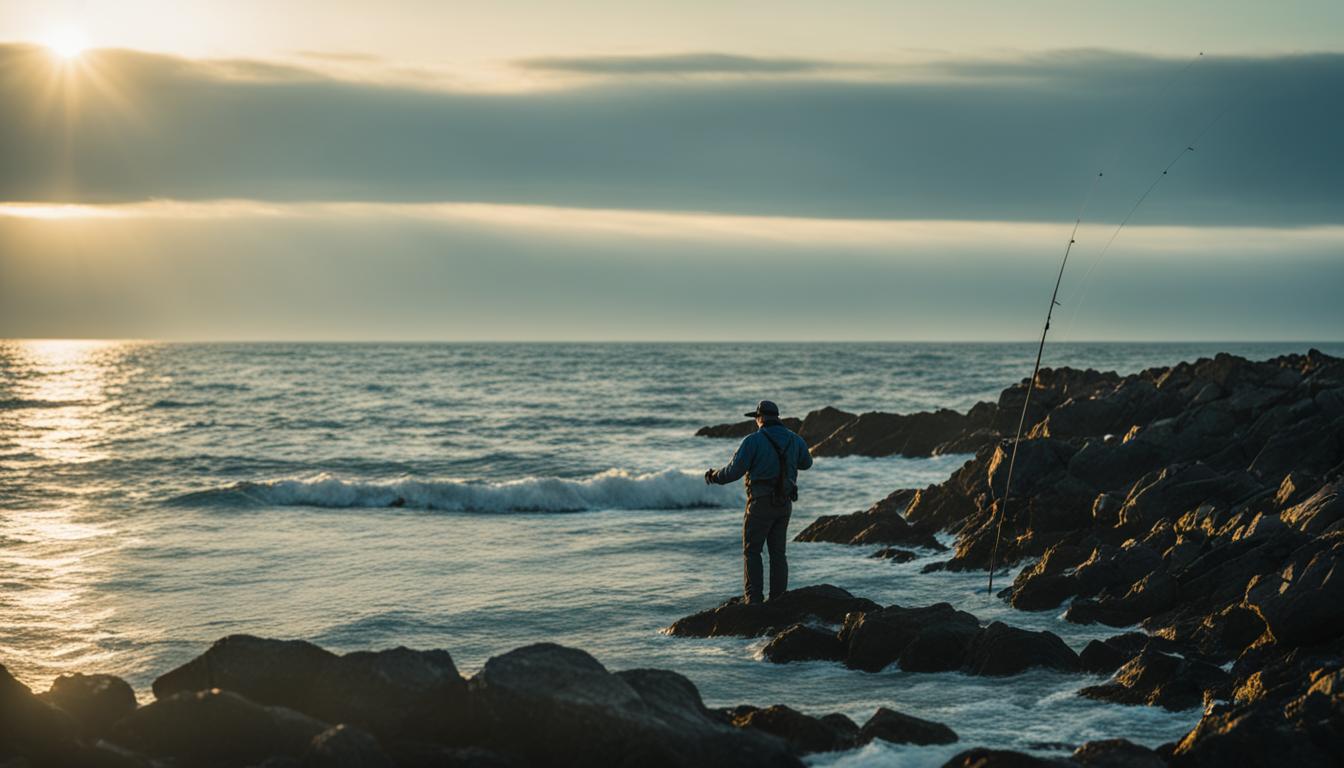Fishing has always sparked a lively debate about whether success in this age-old pastime is driven by luck or skill. Some claim that it’s all about being at the right place at the right time, while others argue that knowledge and expertise are the real secrets to reeling in the big catch. In this article, we aim to shed light on the role of luck versus skill in fishing, exploring the factors that contribute to a successful fishing expedition.
Key Takeaways:
- Is fishing luck or skill? The age-old debate continues, but it’s likely a combination of both.
- Skill in fishing involves knowledge, technique, and adaptability to various conditions.
- Luck plays a role in fishing success, influenced by factors beyond a fisherman’s control.
- Factors like weather conditions, fish behavior, and bait selection can impact fishing outcomes.
- Developing fishing skill requires practice, experience, and continuous learning.
Defining Skill and Luck
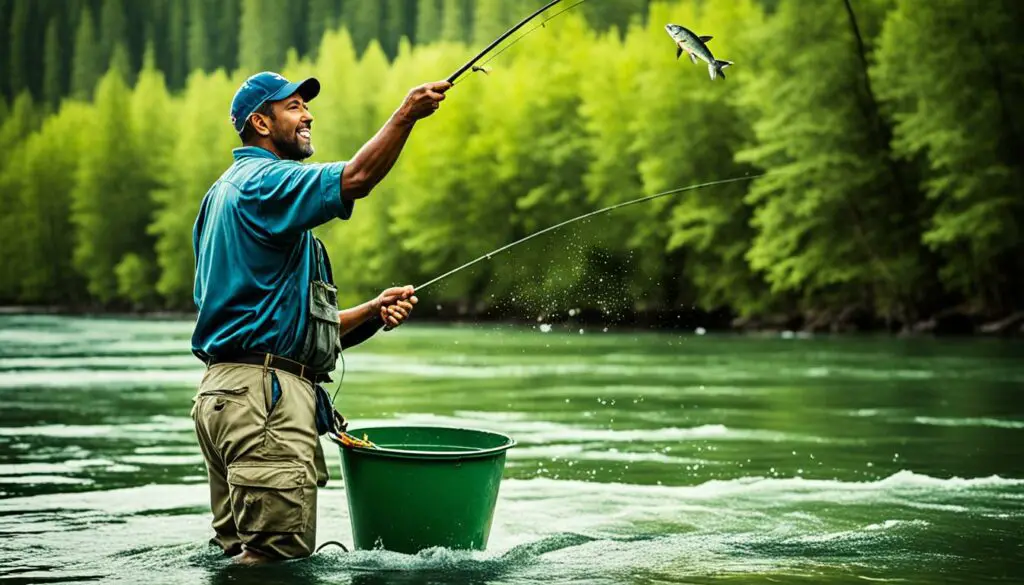
When it comes to the intriguing debate of luck versus skill, it is important to first understand the definitions of these two key elements. Let’s explore the definitions of skill and luck in the context of fishing.
Skill can be defined as the ability to use one’s knowledge effectively and readily in execution or performance. It refers to having the necessary expertise and capability to perform a task successfully.
Luck, on the other hand, is a chance occurrence that happens to a group or an individual. It can be either good or bad and plays a role when it is reasonable to believe that something else may have happened.
Now that we have established the definitions of skill and luck, let’s delve deeper into how they relate to the world of fishing.
The Role of Skill and Luck in Fishing
Fishing, being a complex activity that involves various factors, requires both skill and luck for achieving success. Anglers utilize their skills to navigate through the intricacies of the sport, while luck factors into the unpredictable nature of fishing.
Skilled anglers possess the knowledge and understanding of various techniques and strategies, such as casting, bait selection, and reading the water. These skills enable them to increase their chances of catching fish. However, fishing is not solely dependent on skill. Luck, in the form of favorable weather conditions, fish biting at the right moments, or unexpected surprises, can greatly influence the outcome of a fishing expedition.
It is crucial to recognize that while skill enhances the likelihood of success, it does not guarantee it. Similarly, luck can bring unexpected triumphs or disappointments, regardless of an angler’s expertise.
Developing Fishing Skill
To become a skilled fisherman, one must invest time and effort into developing their fishing skills. This process involves a combination of practice, experience, and knowledge acquisition.
Beginners can start by learning the basics of fishing techniques, such as casting and reeling in a straight line. As their skills progress, they can delve into more advanced techniques and strategies. Reading books, watching instructional videos, and seeking advice from experienced anglers are valuable resources for improving fishing skills.
Ultimately, fishing skill is an ongoing journey that requires continuous learning and practice. By honing their skills, anglers can increase their chances of success and enjoy a more rewarding fishing experience.
| Defining Skill | Defining Luck |
|---|---|
| Skill can be defined as the ability to use one’s knowledge effectively and readily in execution or performance. | Luck, on the other hand, is a chance occurrence that happens to a group or an individual. |
| It refers to having the necessary expertise and capability to perform a task successfully. | It can be either good or bad and plays a role when it is reasonable to believe that something else may have happened. |
Skill and Luck in Fishing
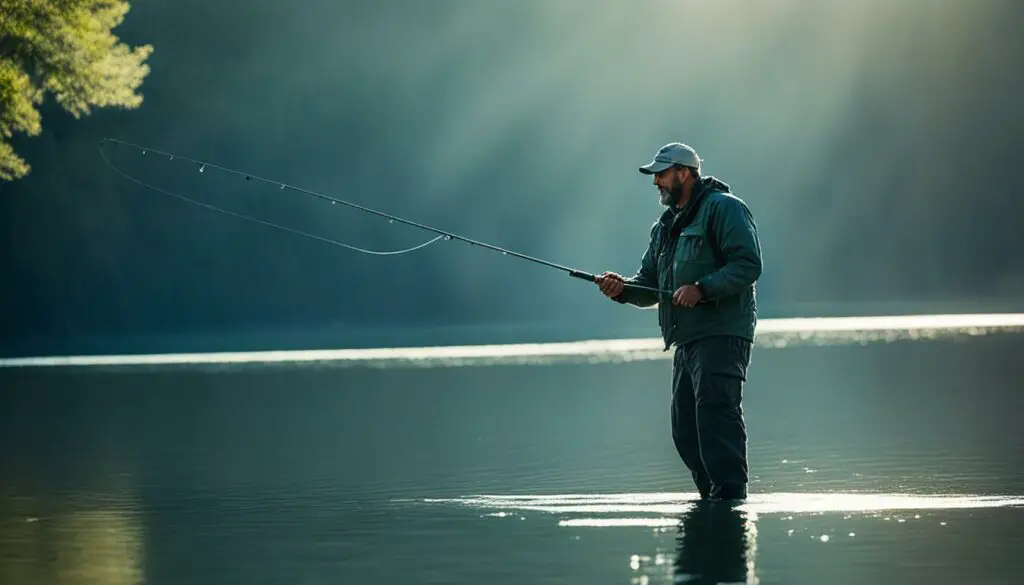
When it comes to fishing, both skill and luck play significant roles in determining success. Fishing is not merely a game of chance; it requires a combination of knowledge, expertise, and favorable circumstances. Let’s delve deeper into the importance of both skill and luck in the art of fishing.
Developing Skill in Fishing
Skill in fishing goes beyond simply casting a line into the water. It encompasses a wide range of techniques and strategies that skilled anglers employ to maximize their chances of catching fish. Understanding the behavior of different fish species, knowing how to properly select and use bait, and the ability to interpret environmental cues are all essential skills that can dramatically improve fishing outcomes.
Mastering the art of fishing requires dedication and a genuine passion for the sport. Skilled anglers spend countless hours honing their techniques, studying the habits of fish, and experimenting with various fishing methods. Their expertise allows them to adapt to different fishing conditions and consistently reel in impressive catches.
The Role of Luck in Fishing
While skill is undoubtedly important, luck also plays a crucial role in fishing. There are certain elements that anglers cannot control, such as weather conditions and fish behavior. A stroke of luck can turn an average fishing day into an extraordinary one, even for the most experienced angler. It’s the mysterious and unpredictable nature of fishing that keeps anglers captivated and always coming back for more.
As the saying goes, “Luck is what happens when preparation meets opportunity.” Skilled anglers understand that although they cannot control luck, they can create favorable conditions by leveraging their expertise and maximizing their chances of success.
Whether it’s skillfully maneuvering the fishing rod or patiently waiting for a hungry fish to take the bait, fishing is a delicate harmony between skill and luck. Both these elements are intertwined, each enhancing the other, as anglers strive to achieve the ultimate catch.
The Relationship Between Skill and Luck
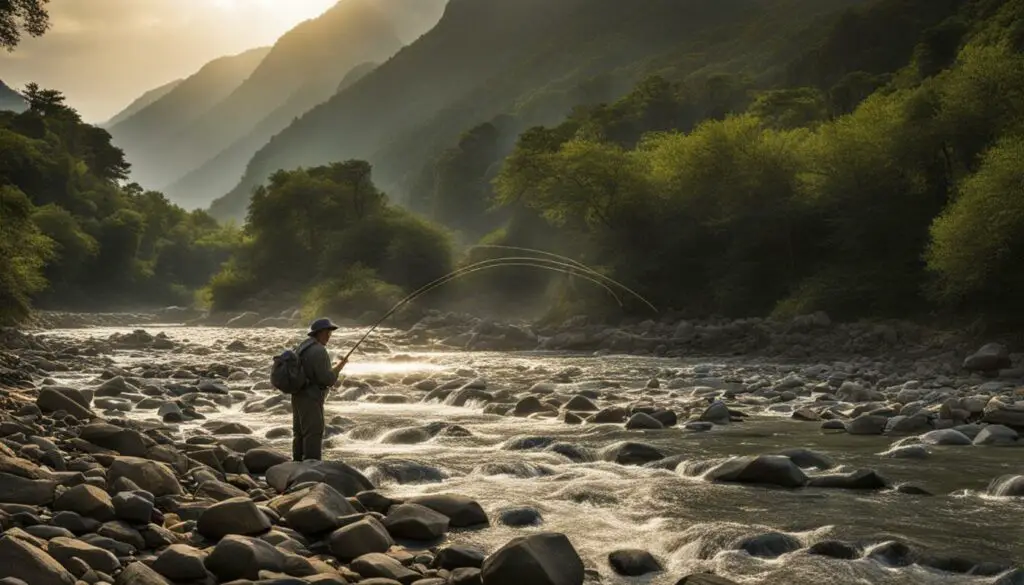
The relationship between skill and luck in fishing is a complex and intriguing one. While some may argue that fishing success is solely determined by skill, and others believe it is purely based on luck, the reality lies in the combination of both factors. Skill and luck work hand in hand to create the optimal conditions for a successful catch.
A skilled fisherman possesses a deep understanding of various fishing techniques, the behavior of different fish species, and the best strategies for casting and bait selection. This expertise increases their chances of landing a great catch. However, even the most skilled angler cannot control external factors such as weather conditions or the unpredictable nature of fish. This is where luck comes into play.
“Luck is what happens when preparation meets opportunity.”
Even with all the knowledge and skill, a fisherman still needs that stroke of luck to have a successful fishing trip. Luck can determine whether the fish are biting on a particular day, whether the bait is attracting their attention, or whether the fishing spot is abundant with fish. It adds an element of unpredictability and excitement to the fishing experience.
“The more I practice, the luckier I get.”
While luck can create opportunities for a catch, it is the skill of the angler that maximizes those opportunities. Skilled fishermen know when and where to fish, how to adjust their techniques, and how to make the most out of even unfavorable conditions. Their experience and expertise enable them to adapt quickly and increase the likelihood of a successful outcome.
Combining Skill and Luck: The Ultimate Fishing Formula
Ultimately, fishing success is neither solely dictated by skill nor determined solely by luck. It is the harmonious combination of both factors. Skilled anglers with a bit of luck on their side have the highest chances of reeling in a remarkable catch.
| Skill | Luck |
|---|---|
| Knowledge of fishing techniques | Optimal weather conditions |
| Understanding fish behavior | Active fish population in the area |
| Effective casting and bait selection | Attracted fish biting on the bait |
The table above illustrates the interconnectedness of skill and luck in fishing. Skill enhances the opportunities provided by luck, while luck increases the potential for success even in the presence of skill. Both factors are invaluable to the fishing experience and contribute to the joy and satisfaction that anglers derive from their time on the water.
Factors Influencing Fishing Success
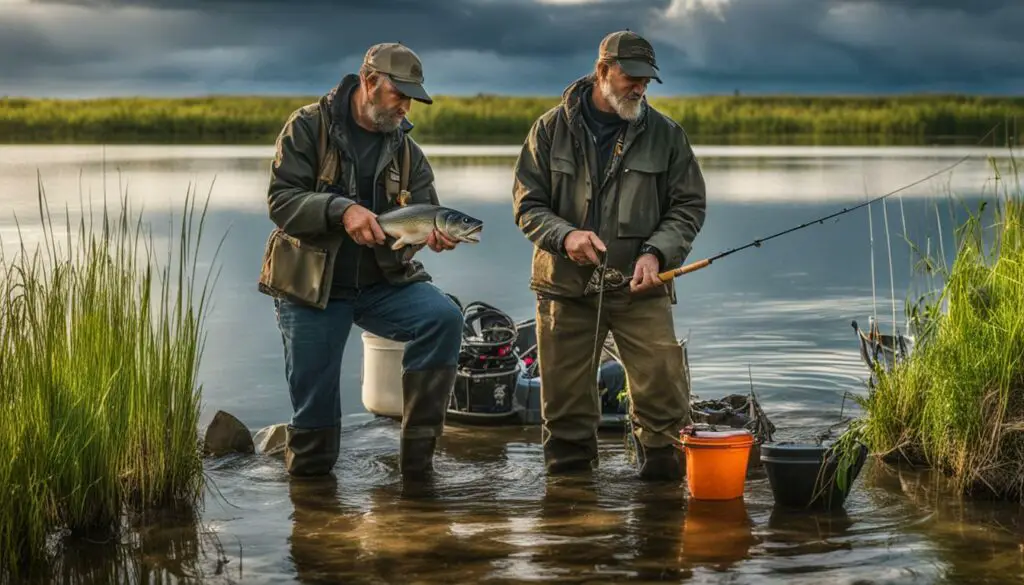
When it comes to fishing, success is not solely determined by luck or skill alone. Various factors contribute to a fruitful fishing expedition. Skillful anglers who understand and manage these factors have a higher likelihood of achieving fishing success. Let’s explore some of the key elements that influence the outcome of your fishing trips.
1. Time of Day
The time of day can significantly impact fishing success. Certain species of fish are more active during specific periods, such as dawn or dusk. By targeting these optimal time frames, anglers can increase their chances of catching a prized fish.
2. Water Temperatures
Water temperatures play a crucial role in fish behavior. Depending on the species, fish may be more active in warmer or cooler waters. Understanding the preferred temperature ranges of your target fish can help you select the right fishing spot and adjust your techniques accordingly.
3. Bait Selection
The type of bait you choose can make a significant difference in your fishing success. Different fish species have distinct preferences when it comes to bait. By using the right bait that mimics their natural food sources, you can attract more fish and increase your chances of a successful catch.
4. Fishing Spot
Choosing the right location is essential for a fruitful fishing trip. Factors such as water depth, structure, and current patterns can influence fish behavior and their feeding habits. Researching and identifying productive fishing spots can greatly improve your chances of success.
5. Adaptability
Fishing success also relies on an angler’s ability to adapt to changing conditions. Being observant of environmental factors like wind direction, water clarity, and weather patterns can help you adjust your fishing techniques and strategies accordingly. Flexibility is key to maximizing your chances of a fruitful catch.
If people concentrated on the really important things in life, there’d be a shortage of fishing poles. – Doug Larson
By taking into account these influencing factors and combining them with your skills as an angler, you can enhance your fishing success. Remember, fishing is a dynamic endeavor, and each fishing trip presents new opportunities and challenges. Embrace the beauty of the sport, continuously learn and adapt, and enjoy the thrill of the chase.
Developing Fishing Skill
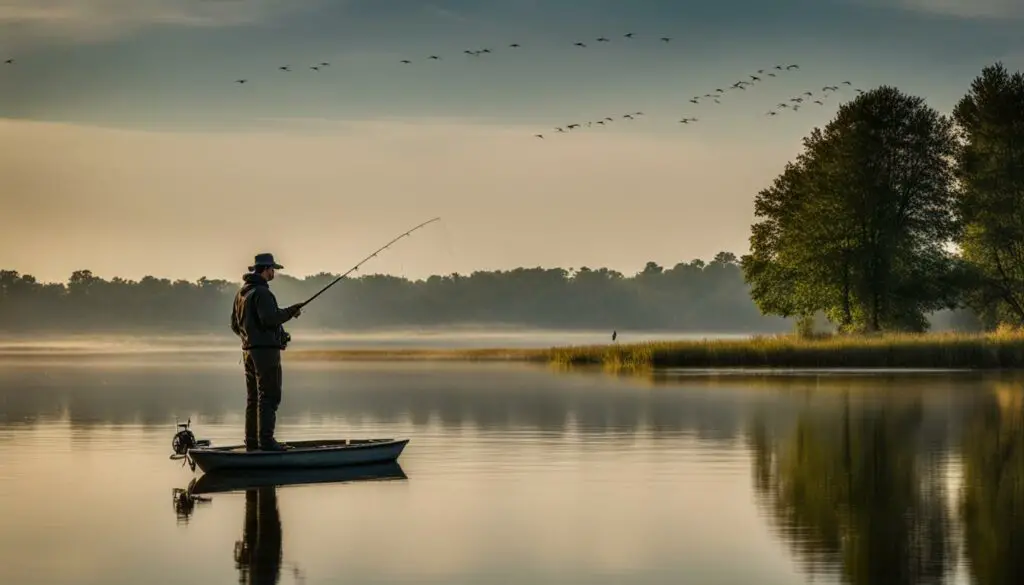
Developing your fishing skills is essential for improving your chances of success on the water. Whether you’re a beginner or an experienced angler, there are several ways to enhance your fishing skillset and become a more proficient fisherman.
1. Learn the Basics
Start by gaining a solid understanding of the fundamental fishing techniques. This includes learning how to cast properly, select the right bait, and read water conditions. Familiarize yourself with different fishing knots and rigs, as well as the equipment you’ll need for different types of fishing.
2. Seek Knowledge
Expand your knowledge by reading books, watching instructional videos, and following reputable fishing blogs or websites. These resources can provide valuable insights, tips, and techniques shared by experienced fishermen. Learning from others’ experiences can help you avoid common mistakes and discover new strategies.
3. Practice Makes Perfect
The more time you spend on the water, the more opportunities you have to develop your fishing skills. Practice casting, retrieving, and setting the hook to improve your accuracy and timing. Experiment with different techniques and observe how fish respond to your actions. Remember, skill development is an ongoing process, so make time for regular fishing excursions.
4. Seek Guidance
Don’t hesitate to seek advice from experienced fishermen. Engage with local fishing communities, join fishing clubs, or participate in fishing workshops or events. Connecting with anglers who have years of experience can provide valuable insights and mentorship opportunities that accelerate your skill development.
5. Embrace New Technologies
Incorporate the use of modern fishing technologies into your skill-building journey. From fish finders to advanced navigation systems, these tools can enhance your understanding of underwater topography and fish behavior. Stay up to date with the latest fishing apps and gadgets designed to optimize your fishing experience.
“The more you know, the more you’ll catch. Developing your fishing skills is a continuous process that requires dedication, practice, and an open mindset.”
6. Share Your Knowledge
Teaching others is an effective way to deepen your understanding of fishing principles and refine your own techniques. Share your knowledge and experiences with fellow anglers, friends, or family members interested in fishing. Explaining concepts and demonstrating skills will reinforce your learning while fostering a sense of community among fellow fishing enthusiasts.
| Benefits of Developing Fishing Skills | How It Helps |
|---|---|
| Increased Catch Rates | Improving your fishing skills enhances your ability to find and entice fish, resulting in more successful catches. |
| Greater Confidence | Mastering various fishing techniques and strategies builds confidence, making your time on the water more enjoyable. |
| Adaptability | As your skills improve, you’ll gain the flexibility to adapt to different fishing conditions and handle unexpected challenges. |
| Self-Sufficiency | Developing your fishing skills empowers you to fish more independently, relying less on luck and more on your expertise. |
| Deeper Appreciation for Nature | As you become more attuned to the environment and the intricacies of fishing, you’ll develop a greater appreciation for nature and its wonders. |
Remember, improving your fishing skills takes time and dedication. Embrace the learning process, stay curious, and continually seek opportunities to broaden your knowledge and refine your techniques.
The Role of Luck in Fishing
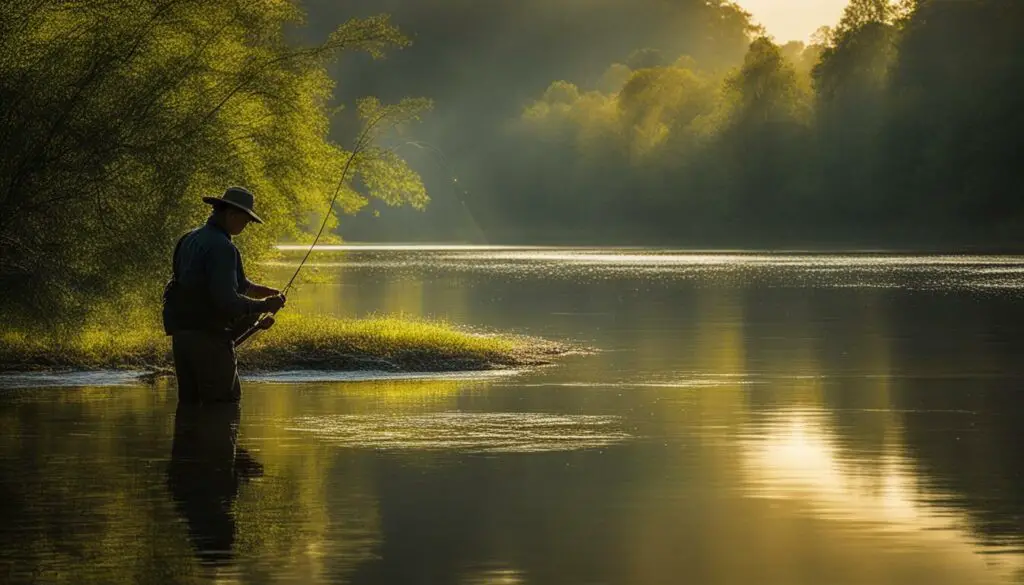
Luck is an inherent component in the world of fishing. Whether you’re casting your line into a tranquil lake or battling the waves of the open ocean, luck can be the deciding factor between a bountiful catch and a day of empty hooks. While skill undoubtedly plays a crucial role in angling success, it’s important to acknowledge the influence of luck in shaping a fishing expedition’s outcome.
When it comes to fishing, luck can manifest in various ways. It can determine whether a fish decides to bite your bait or swim away, influencing the success of your efforts. Factors such as weather conditions, fish behavior, and the presence of other fishermen in the area are all subject to the whims of luck. Even with impeccable technique and a deep understanding of fishing strategies, these external elements can significantly impact your chances of reeling in a prized catch.
However, this doesn’t mean that skill takes a backseat to luck in fishing. Skilled anglers possess a breadth of knowledge and expertise that increases their chances of success. They understand the intricacies of casting, bait selection, and reading the water, enabling them to make informed decisions that enhance their fishing experience. While luck may dictate certain aspects of the fishing process, skill empowers anglers to adapt to changing conditions and maximize their opportunities.
It’s worth noting that the interplay between luck and skill in fishing is not an all-or-nothing game. Instead, it’s a delicate balance that experienced anglers strive to strike. By honing their skills and staying attuned to the natural rhythms of the water, anglers can increase their odds of a fruitful fishing adventure. However, they also recognize that luck has an undeniable role to play, embracing its unpredictable nature while working within its bounds.
| Factors Influencing Fishing Success | Skill | Luck |
|---|---|---|
| Weather Conditions | Anglers can study weather patterns and adjust their fishing strategies accordingly. | Unpredictable weather changes can affect fish behavior and feeding patterns. |
| Fish Behavior | A skilled angler can analyze fish movements and adjust their techniques to attract bites. | Fish can be elusive and unpredictable, sometimes evading even the most skilled angler. |
| Presence of Other Fishermen | Skilled anglers can identify less crowded areas and increase their chances of success. | Competing with other fishermen for limited fish resources can impact catch rates. |
Ultimately, fishing is a pursuit that encompasses both skill and luck. While skill allows anglers to navigate the intricacies of their craft, luck remains an influential force that can amplify or diminish the results. By understanding and respecting the role of luck in fishing, anglers can embrace the uncertainties of the sport and find joy in the thrill of the chase.
Finding the Balance between Luck and Skill
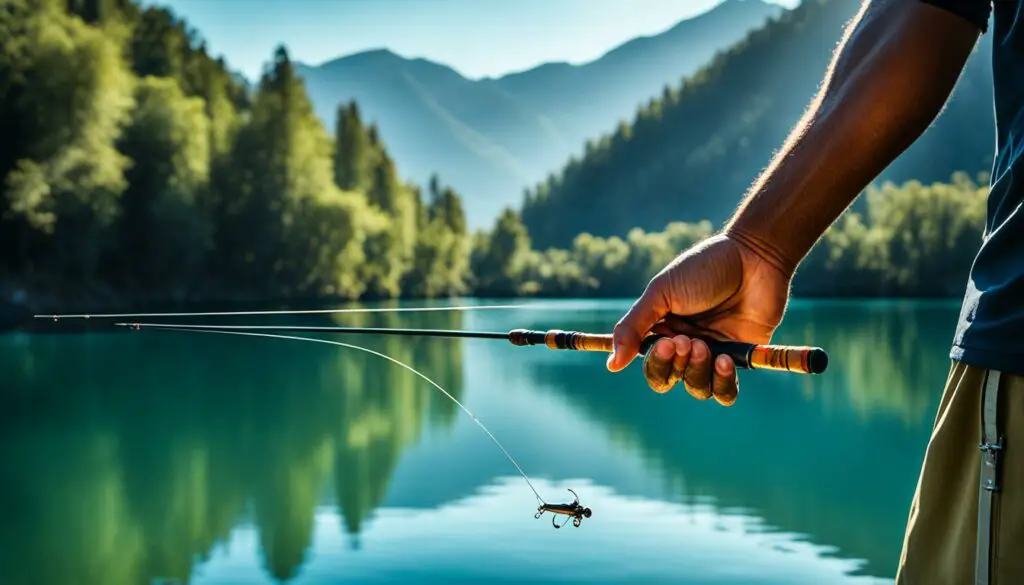
When it comes to fishing, finding the balance between luck and skill is essential for achieving consistent success. Skilled anglers understand the importance of preparation, knowledge, and technique, while also recognizing that luck can play a significant role in the final outcome.
By combining skillful fishing strategies with an understanding of the unpredictable nature of fishing, anglers can increase their chances of success. It is crucial to develop a repertoire of techniques and tactics that have proven effective over time, allowing fishermen to adapt to different scenarios.
One way to find the balance between luck and skill is to stay informed about the habits and behaviors of the fish being targeted. This knowledge can help anglers anticipate where the fish are likely to be and what type of bait or lure they are more likely to respond to. Additionally, understanding the impact of weather conditions on fish behavior can provide valuable insights and influence the fishing strategy.
“Luck is what happens when preparation meets opportunity.”
Preparation is an essential aspect of fishing that can tip the scales in favor of skill. Researching fishing locations, studying local fishing reports, and networking with experienced anglers can provide valuable information that increases the chances of a successful fishing trip.
However, it’s important to remember that luck is still a factor in fishing. Even with impeccable preparation and skillful execution, there are no guarantees. The fish can be unpredictable, and external factors such as changes in water conditions or unexpected weather patterns can influence the outcome.
By embracing the balance between luck and skill, anglers can approach fishing with a sense of adventure and humility. Understanding that some factors are out of their control allows fishermen to appreciate the serendipitous moments that make fishing an exciting and unpredictable pursuit.
Finding the Balance between Luck and Skill
| Luck | Skill |
|---|---|
| Can determine whether a fish bites or not | Increases the chances of catching fish |
| Influenced by external factors beyond the angler’s control | Built through experience, knowledge, and technique |
| Can lead to unexpected opportunities and surprises | Allows for adaptability and effective decision-making |
By finding the delicate balance between luck and skill, anglers can embrace the joy and excitement of fishing while increasing their chances of success. Whether it’s a stroke of luck or the result of meticulous preparation, each catch adds to the rich tapestry of fishing experiences.
The Joy of Fishing
Regardless of the role of luck versus skill in fishing, one cannot deny the joy and excitement that fishing brings. For many, fishing is not just about catching fish, but also about immersing oneself in nature, enjoying the peacefulness of the surroundings, and the opportunities for relaxation and reflection. The thrill of the challenge and the anticipation of a bite are what make fishing a beloved recreational activity.
Whether you are casting your line in a serene lake, a flowing river, or the vast ocean, fishing offers a unique connection to the natural world. The tranquility of being out on the water, away from the hustle and bustle of daily life, allows for a sense of calm and rejuvenation. It’s a chance to escape the noise and distractions and focus on the simple pleasure of being present in the moment.
Fishing as a recreational activity provides not only the thrill of the chase but also an opportunity to bond with friends and family. Sharing stories, laughter, and the excitement of reeling in a catch creates lasting memories and strengthens relationships. Whether you’re teaching a child to fish for the first time or competing with friends to see who can catch the biggest fish, fishing fosters camaraderie and a sense of community.
The thrill of fishing lies not only in the possibility of a successful catch but also in the anticipation of what awaits beneath the surface. Each cast brings with it a sense of hope and curiosity, wondering what species of fish may be lurking below. It’s a thrilling moment when you feel a tug on the line and engage in a battle of wits and strength with a powerful fish.
Moreover, fishing offers a chance for introspection and self-discovery. As you wait for a bite or observe the serene environment around you, you may find yourself contemplating life’s bigger questions or simply finding solace in the quietude of nature. It’s a time to recharge, reflect, and reconnect with yourself.
In conclusion, the joy of fishing transcends the debate of luck versus skill. It encompasses the beauty of nature, the bond with loved ones, the exhilaration of the chase, and the moments of personal reflection. So grab your tackle box, find your favorite fishing spot, and immerse yourself in the serenity and excitement of this beloved recreational activity.
The Digital Age of Fishing
The fishing experience has entered a new era in the digital age, revolutionizing the way anglers approach their favorite pastime. With the advent of technology, fishing enthusiasts now have access to a plethora of online resources and tools that enhance their skills and increase their chances of success.
Online platforms dedicated to fishing provide a wealth of information that was previously inaccessible. From detailed fishing reports to real-time weather updates, anglers can stay informed about the best times and locations to cast their lines. With just a few taps on their smartphones, they can access tips, tricks, and techniques from seasoned anglers, further refining their abilities.
In addition to online resources, advanced fishing technologies have also made a significant impact. Cutting-edge fish finders and GPS systems allow anglers to pinpoint the exact location of their targets, increasing their chances of a successful catch. Virtual fishing tournaments have taken the digital age by storm, offering anglers the opportunity to compete with fellow fishing enthusiasts from the comfort of their own homes.
The digital age of fishing has truly redefined the possibilities and reach of this beloved recreational activity. Anglers no longer rely solely on luck and intuition but can harness the power of technology to enhance their skills and increase their chances of a memorable fishing experience.
FAQ
Is fishing purely based on luck or skill?
Fishing involves a combination of both luck and skill. Skillful techniques can increase the chances of catching fish, but luck is still a factor in determining the outcome.
How do you define skill and luck?
Skill refers to the ability to use knowledge effectively in execution, while luck is a chance occurrence that happens to individuals or groups.
What is the role of skill in fishing?
Skill in fishing involves techniques such as casting, bait selection, and reading the water. It can increase the chances of catching fish and improve the overall fishing experience.
How does luck come into play in fishing?
Luck plays a role in fishing through factors beyond a fisherman’s control, including weather conditions, fish behavior, and the presence of other fishermen in the area.
How do skill and luck interact in fishing?
Skill and luck are not mutually exclusive in fishing. They work in combination, with skill increasing the chances of success while luck influences factors that are beyond a fisherman’s control.
What factors influence fishing success?
Apart from skill and luck, factors such as the time of day, water temperatures, bait selection, and fishing location can also influence fishing success.
How can one develop fishing skill?
Fishing skill can be developed through practice, experience, knowledge acquisition, and learning from experienced fishermen. Continuous learning and practice are key to improving fishing skills.
What is the role of luck in fishing success?
Luck plays a significant role in fishing success, as it can determine whether a fish bites or not and influence various external factors that impact fishing conditions.
How can one find the balance between luck and skill in fishing?
Finding the balance between luck and skill requires understanding the importance of preparation, knowledge, and technique, while also recognizing that luck is a determining factor in the final outcome.
What makes fishing a joyful activity?
Fishing provides joy and excitement through the thrill of the challenge, immersing oneself in nature, enjoying the peacefulness of the surroundings, and the opportunities for relaxation and reflection.
How has the digital age impacted fishing?
The digital age has transformed the fishing experience, providing anglers with access to a wealth of information, online resources, fishing apps, and advanced fishing technologies to enhance their skills and increase their chances of success.
